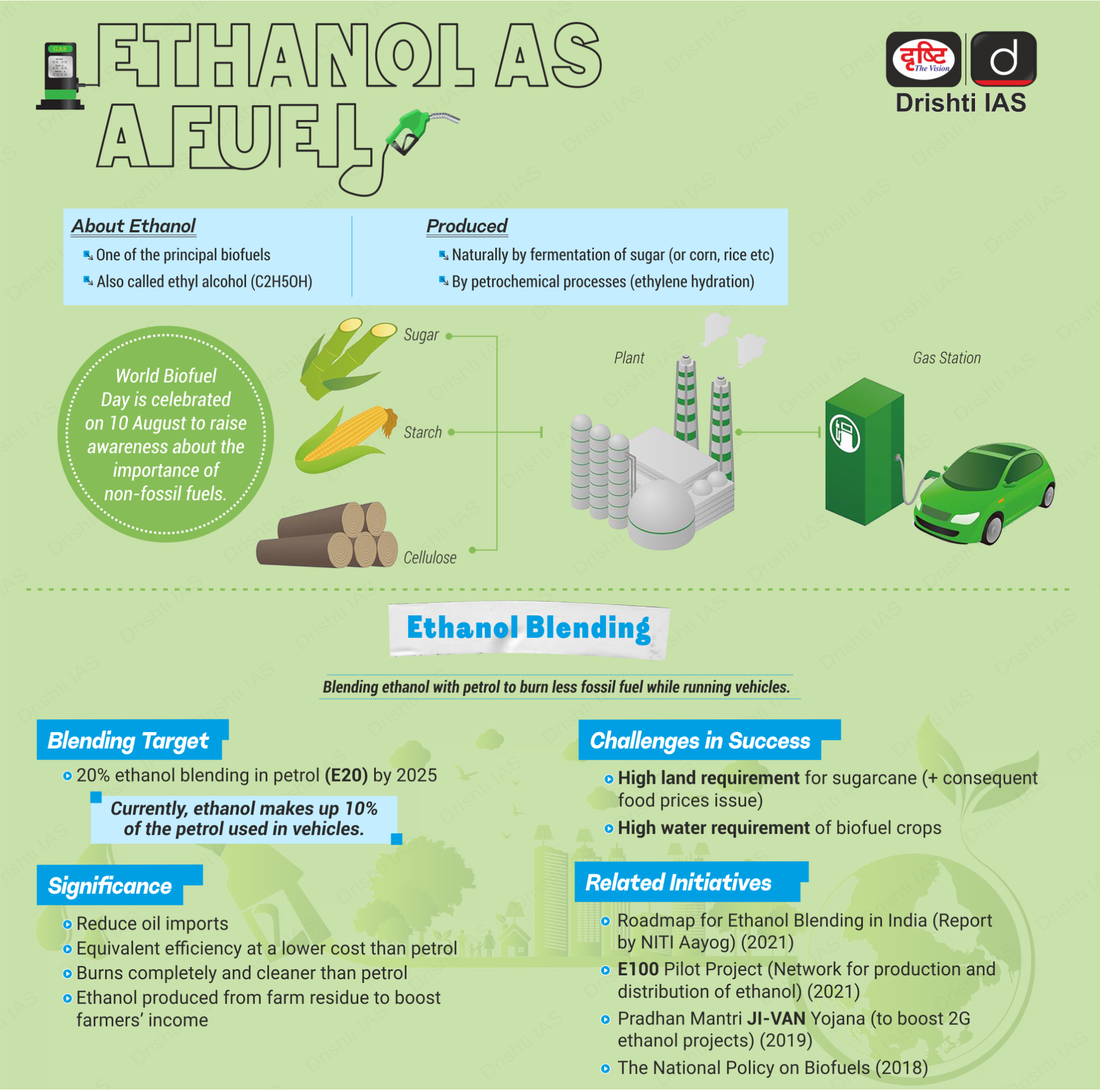Rapid Fire
India’s First Bamboo-Based Ethanol Plant
- 15 Sep 2025
- 2 min read
The Prime Minister inaugurated India’s first bamboo-based bioethanol plant in Golaghat, Assam, marking a major step toward energy self-sufficiency and green energy promotion.
- Economic Impact: Bioethanol plant will source 5 lakh tonnes of bamboo annually from Assam and other northeastern states. The project will benefit local farmers and tribal communities, providing a Rs 200-crore boost to Assam’s rural economy.
- After the amendment to the Indian Forest Act, 1927, bamboo is no longer classified as a tree, lifting the ban on its cutting. This change supports the livelihoods of forest communities and private growers.
- It aligns with India’s Viksit Bharat vision, focusing on hydrocarbon exploration and green energy initiatives, and aims to reduce dependence on fossil fuels.
- Bioethanol: It is a high-octane biofuel (C2H5OH) produced biologically from biomass like corn, sugarcane, grains, bamboo and vegetable residues.
- It is mainly used as a gasoline additive, with engines now capable of burning pure ethanol.
- Key production steps include fermentation of sugars, pretreatment of starch or cellulose, distillation, and dehydration to fuel-grade ethanol.







